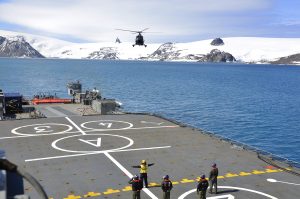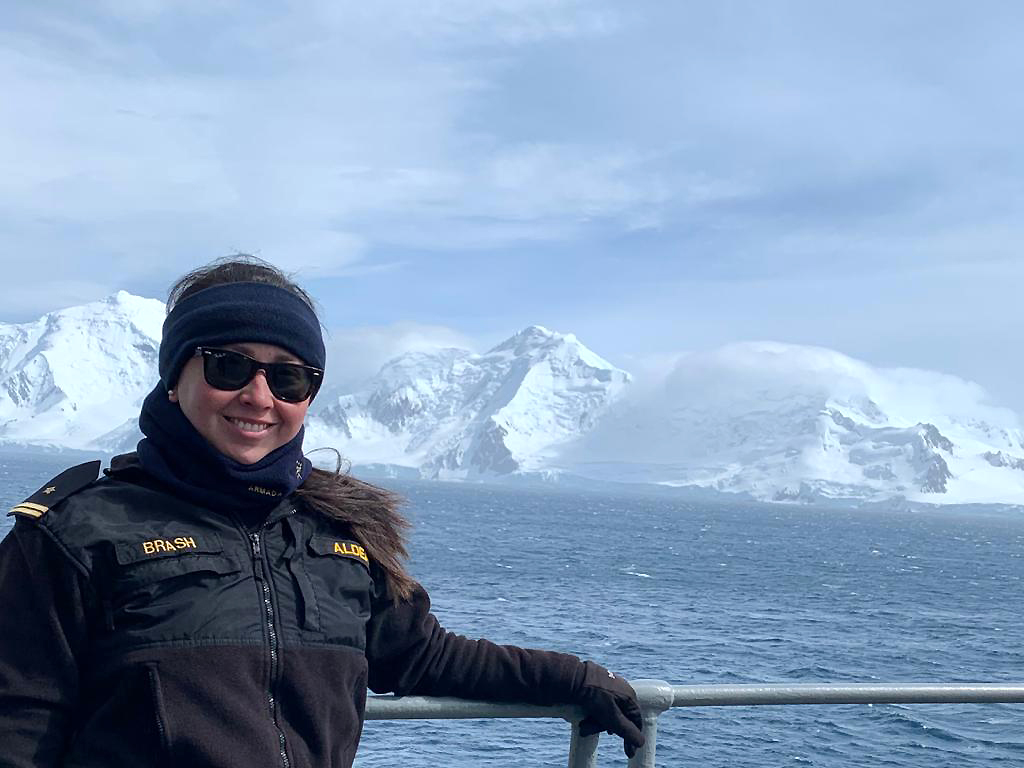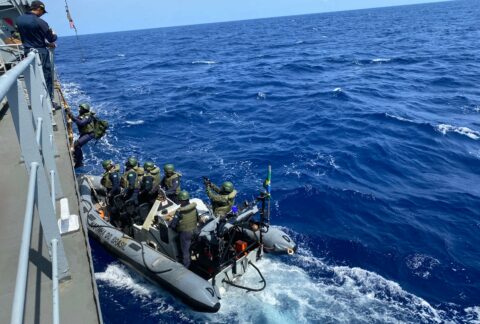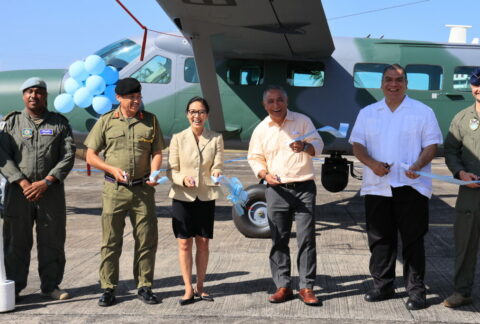Since late 2019, the Chilean Navy has its first generation of female lieutenants. Twenty-four women from all over the country rose to this rank, marking a milestone for the naval institution, which seeks to increase female participation in its units.
Among these women, one officer stands out for her participation in the search for a Chilean Air Force (FACh, in Spanish) aircraft that crashed into the sea on its way to Antarctica in December: Lieutenant Greassy Brash. Deployed as the only female officer on the multipurpose ship LSDH-91 Sargento Aldea, a transport logistics vessel, Lt. Brash served as flight deck officer for the two Bolkow helicopters on board.
It was the first time that Sargento Aldea was taking part in the Chilean Navy’s Antarctic Naval Campaign, setting sail in mid-November to transport equipment and supplies. However, as the crew crossed the Drake Passage, they heard that the FACh’s C-130 Hercules had gone missing, so they used their resources to find the military aircraft, which carried 38 people on board.

“As flight deck officer during the search mission to find the C-130’s remains, I was in charge of all air operations, including helicopter takeoff and landing on the ship, as well as the designation of personnel on deck and at sea to search for the remains, which were brought on board for their classification,” Lt. Brash said.
The Drake Passage, a maritime zone that separates Antarctica from the southernmost part of South America, is known for being one of the most dangerous areas in the world to operate in, both by air and by sea, due to its harsh weather conditions.
“There’s an interesting process on the flight deck, where there are several factors to consider: wind, and load weight to reduce the risk for the helicopter,” said Chilean Navy Captain Roberto Fonseca, commander of the Sargento Aldea, about Lt. Brash’s role. “Although our helicopter pilots are professionals, the link between the ship and air element is managed by the flight deck officer. That’s where Lt. Brash’s leadership stood out. Her hallmark is discipline and following protocols; she is a leader and a guide.”
Raised in Talcahuano, a port town in the south of Chile, Lt. Brash never imagined she would pursue a career in the Navy until 2007, when the Naval Academy opened the doors of its officer training courses to women. “I wanted to know what it was about, so I applied and got in with other women,” said the lieutenant. “The first year was tough, not only because we were the first generation, but also because the men in the course had to assimilate this change.”
These obstacles didn’t stop her. She chose the Supply officer program, with a specialization in finance and management. And a few years following her admission, “she stood out among all the country’s officers in her specialty, with a special recognition by the institution for her strong performance, faultless behavior, and ability in sports,” the Army said in a press release.
Lt. Brash takes pride in the responsibilities that come with her decision to be part of the first generation of naval women in Chile. “We are defining patterns and behavior, and everything we do or stop doing can either create or destroy expectations regarding how women can advance in the Navy. At this moment, we are the basis for the new generations to come, and we are leading the way in a man’s world.”









